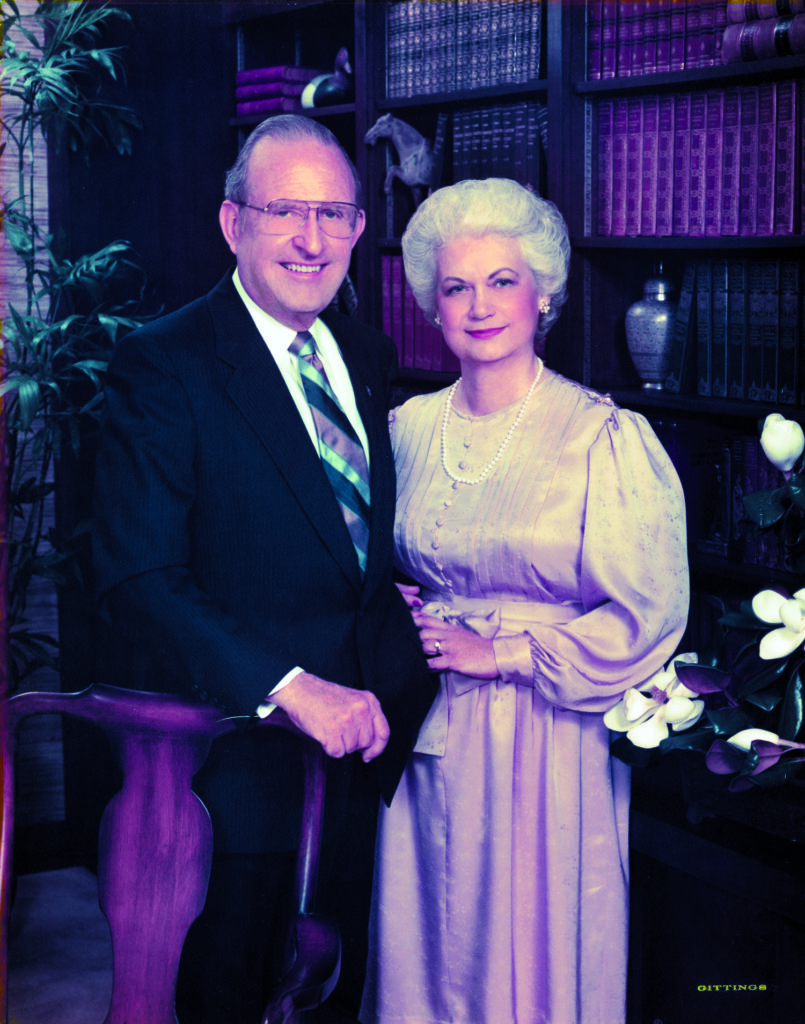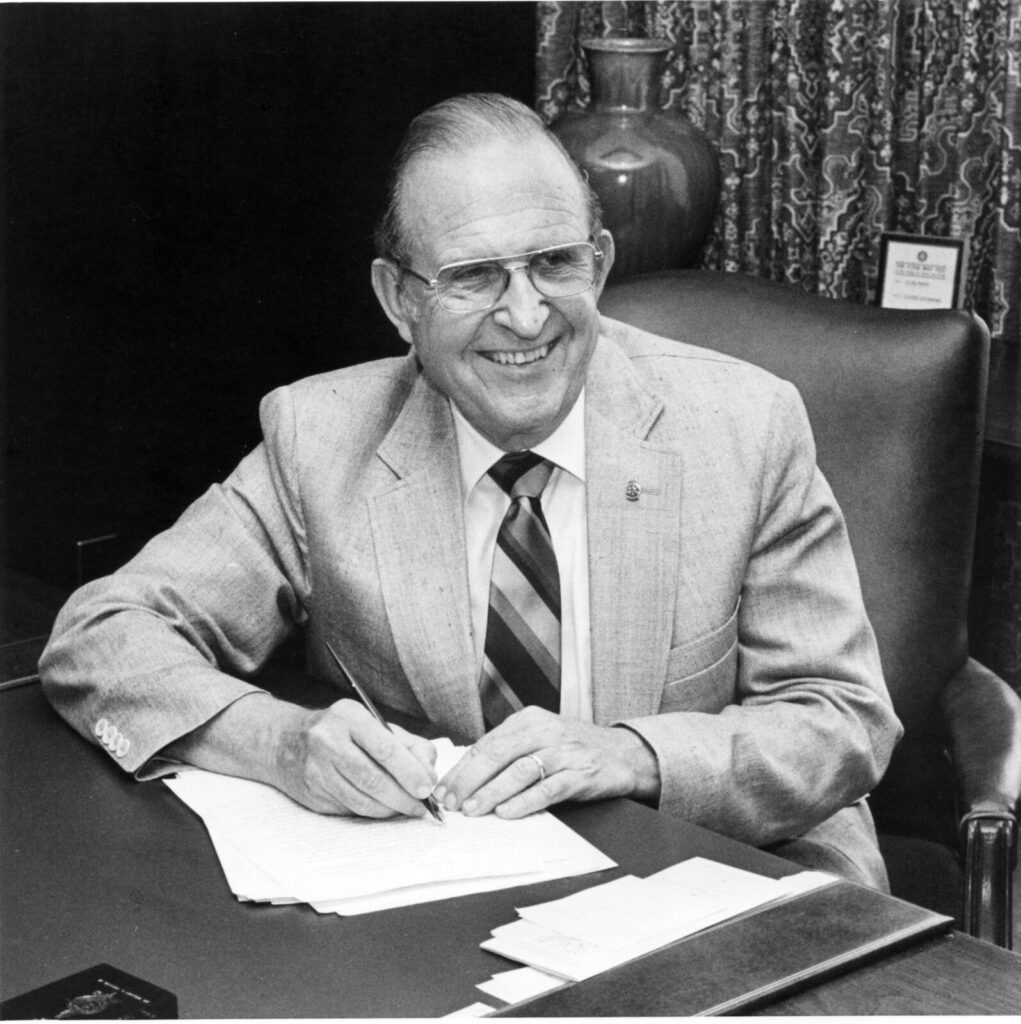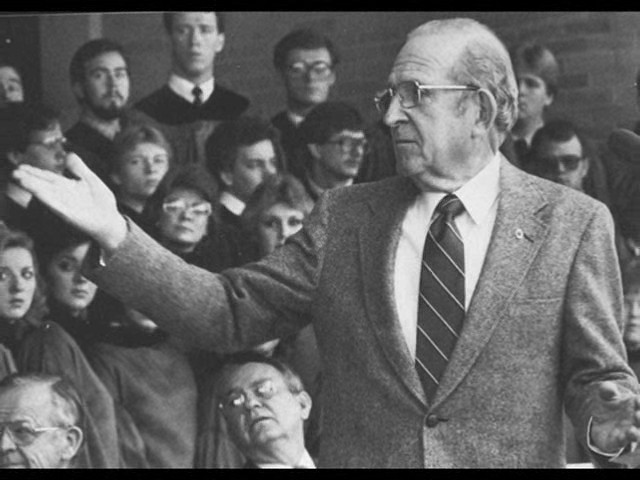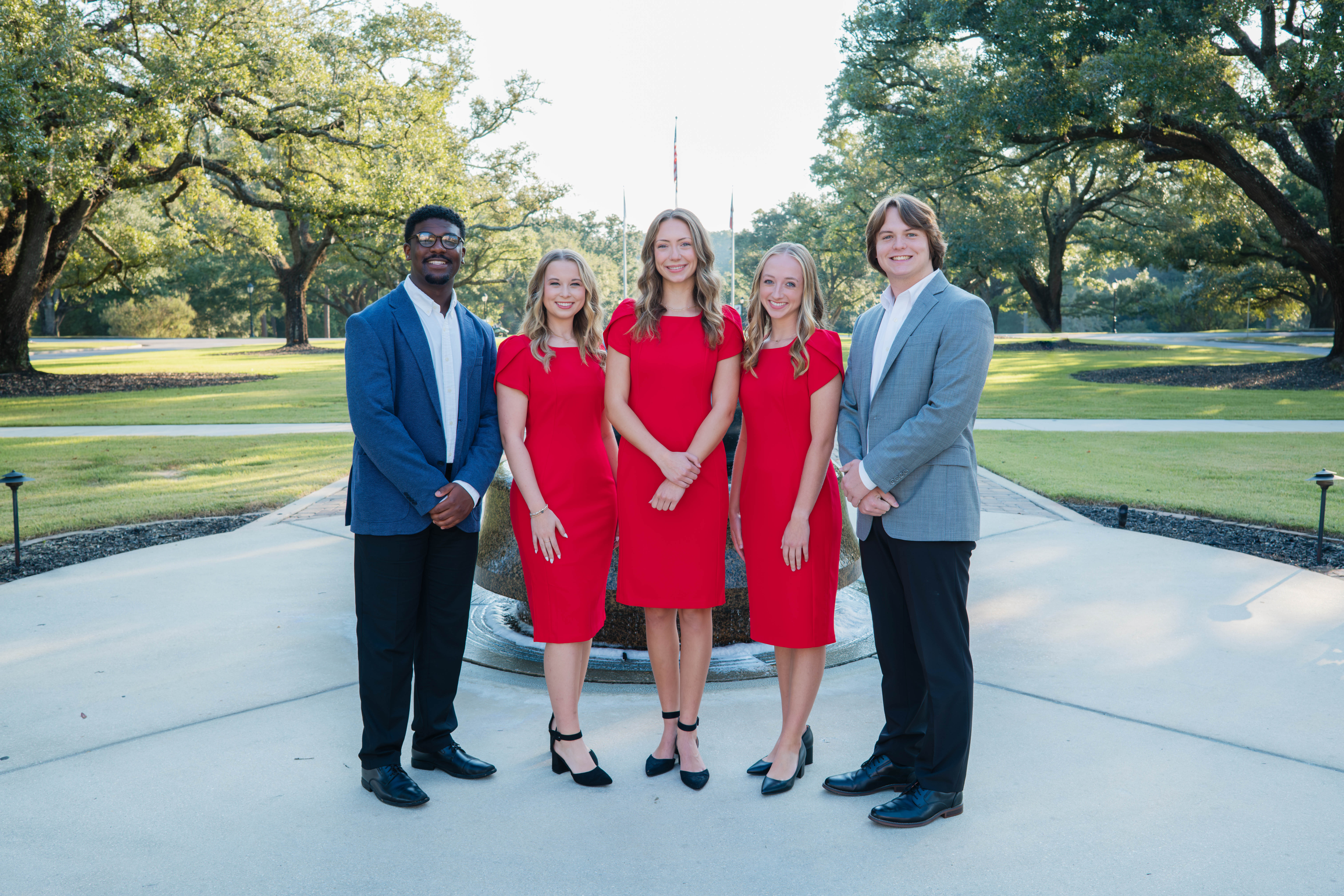Tell Me a Story: William K. Weaver Jr.
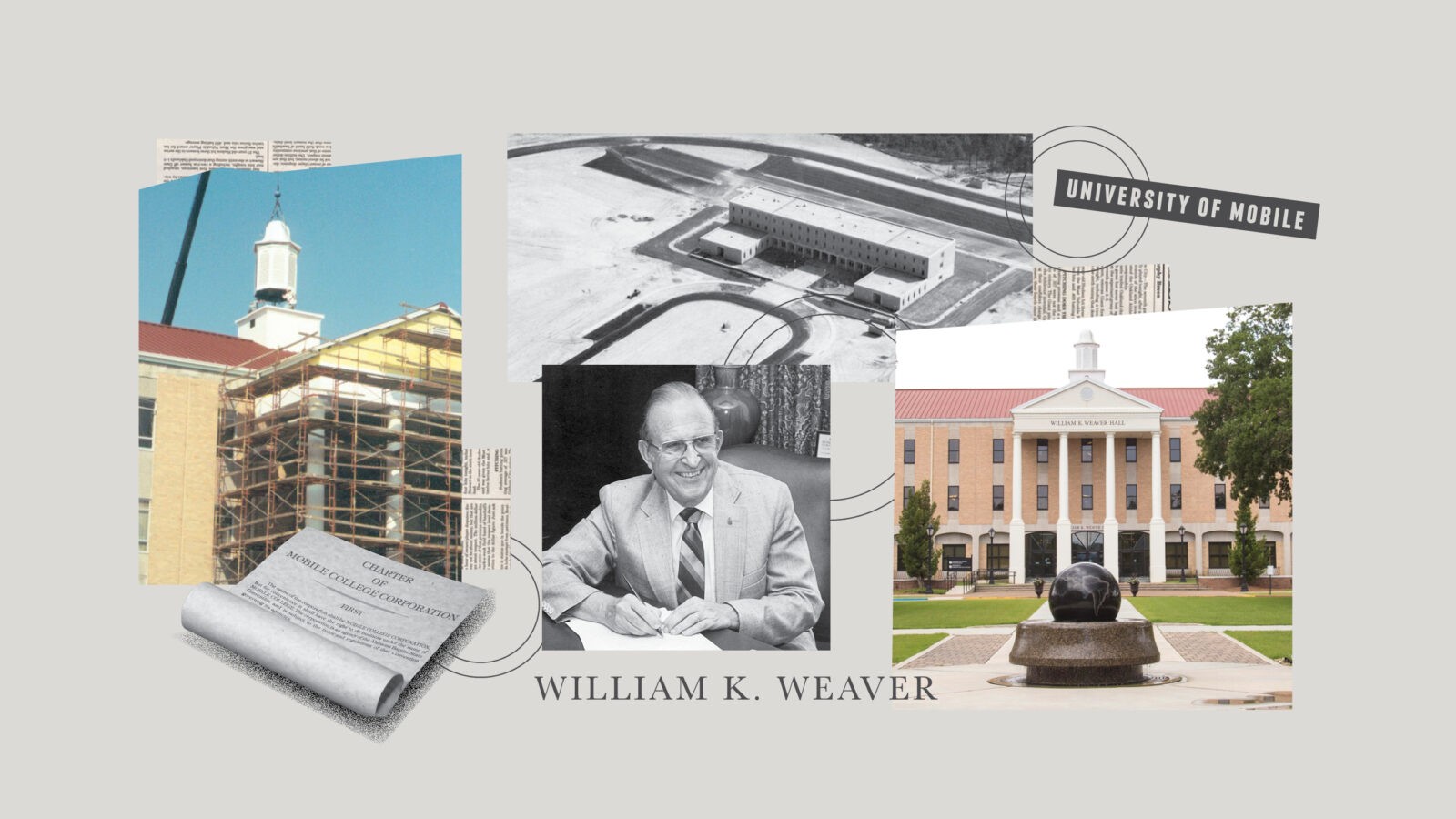
There was a story that Dr. William K. Weaver Jr. loved to tell.
It started off with a young preacher from Sylacauga, Alabama, and a group of Baptists who thought it would be a good idea to start a college in the southern part of the state, where access to higher education was limited.
Along the way, the story of this man expanded into the story of a college.
The story had the potential to be ironic.
When Weaver was named president of Mobile College – a college that didn’t yet exist – it was April Fool’s Day – April 1, 1961.
Not everyone can say they have been a college president. Only one can – and did – say he was chosen as president of a college that had “no land, no buildings, no library, no faculty, no students – and no problems.”
But turning a college that existed only on paper into a reality within two years was no joke.
The new college president’s first workday started on the afternoon of April 4, 1961, when the Mobile Register reported that he “simply hung up his hat in the college offices at 836 First National Bank Building and went to work.”
The University of Mobile, officially chartered as Mobile College by the state of Alabama on Dec. 12, 1961, was to be the life’s work of Weaver and his wife, Annie Boyd Parker “B” Weaver. Today, the first building that new students see as they arrive on campus bears his name: William K. Weaver Hall.
Weaver Hall Then and Now
When the first freshman class enrolled at Mobile College in 1963, the 400-acre campus had only one building. The Administration-Classroom Building housed everything a college needed at that time – a library, classrooms, auditorium, faculty and staff offices, and a snack shop.

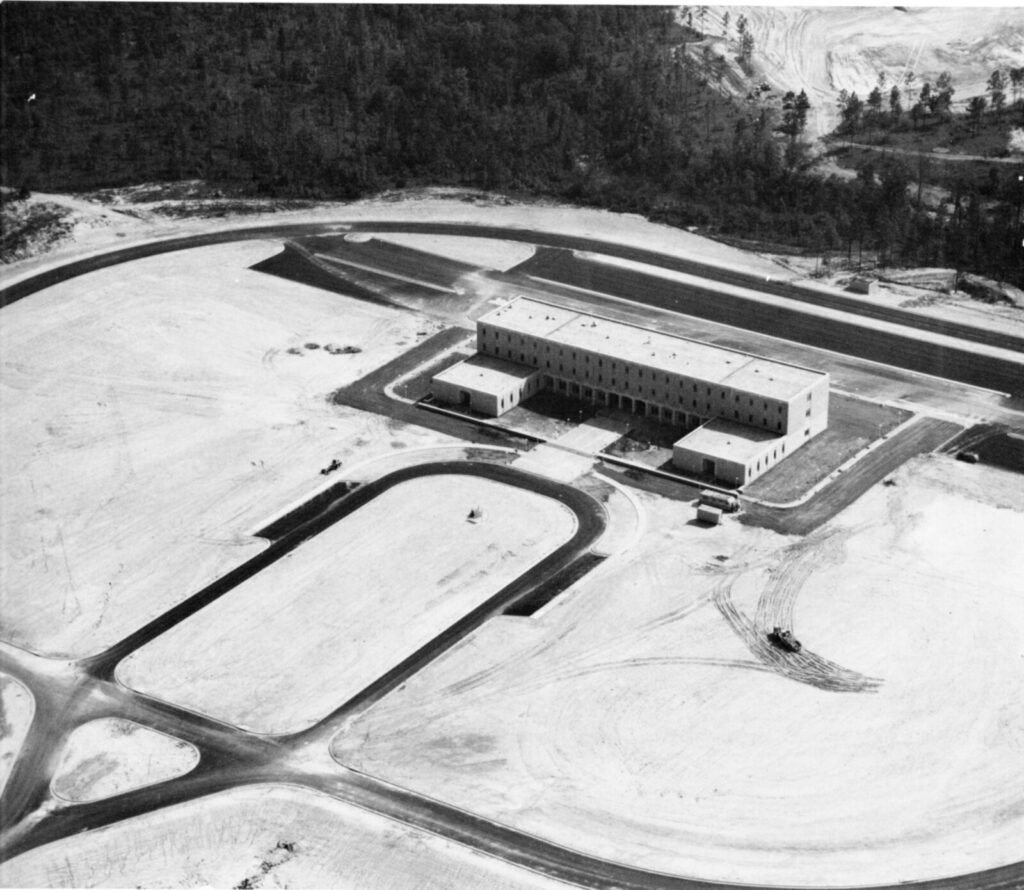
“The building stood at the top of a red mud hill on which very little grass was growing, and there were no trees along the drives or on the large area cleared for buildings,” recalled Weaver.
Renamed William K. Weaver Hall in 1984 upon the founding president’s retirement, the university’s signature building has undergone several renovations over the years. An exterior renovation added a roof, portico and cupola. Later, an interior renovation gutted the top two floors and added state-of-the-art facilities for health care and science programs.
Today, the University of Mobile offers “Higher Education for a Higher Purpose” with associate’s, bachelor’s, master’s and doctoral degrees in over 75 academic areas. The Christ-centered university affiliated with the Alabama Baptist State Convention has a campus of more than 880 acres with over 14,000 alumni throughout the world pursuing God’s calling for their lives.

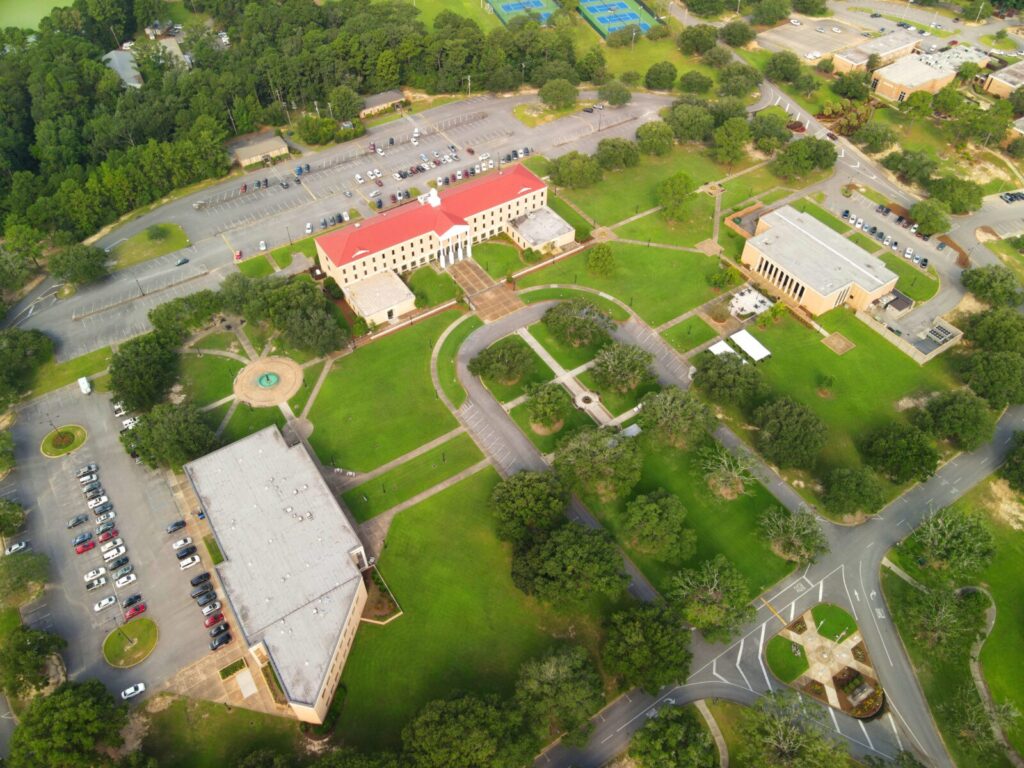
Who was William K. Weaver Jr.?
Born in Oxford, Alabama, Bill Weaver grew up in Talladega. He earned a Bachelor of Arts from Howard College, now Samford University, and a Master of Theology from Southern Baptist Theological Seminary. Later, he was awarded the Doctor of Divinity from Samford University the Doctor of Law from the University of Mobile.
Weaver served in World War II as a lieutenant in the U.S. Navy Chaplain Corps, was ordained to the ministry by First Baptist Church of Talladega, served as the first director of religious activities at Howard College/Samford University, then was director of Baptist Student Work in Alabama.
After a decade as a successful pastor of First Baptist Church of Sylacauga and while serving as chairman of the committee charged with exploring options for forming a Baptist college in Mobile, Weaver was chosen to be the founding president of Mobile College. He was extensively involved in a variety of leadership positions throughout the community and Alabama Baptist life.
He retired as president of Mobile College in 1984, when the administration building was renamed in his honor, and continued serving the university as chancellor until his death in 2014 at the age of 95. B Weaver died in 2008. The university’s two top awards presented at graduation are named in their honor. The William K. Weaver Jr. Excellence Award and Annie Boyd Parker Weaver Excellence Award are presented to graduates who exemplify the mission of the university, with selection based on scholarship, Christian character, leadership and service.
At Weaver’s memorial service, then-UM President Mark Foley said the driving element in Weaver’s life was to be of service to God and to be directed by God in that service. The forum for that service was the founding and building of what became the University of Mobile.
An Encourager
Remembered for his kindness, humor, faith and love of family, Weaver enjoyed telling the story of the university he was instrumental in founding.
“During my years as president, I would sometimes say to students, ‘If you want to be a college president, do what I did – start one!’” Weaver wrote in a 2003 series of articles for the Ram Report campus newsletter.
Weaver’s ability to seek common ground in order for progress to be made was illustrated by a story he told about a “crisis” in the library, then housed in what is now Weaver Hall. The crisis retold reveals a close-knit college community that brought even minor issues to the president for solution.
“During the first year a ‘major crisis’ arose in the library area. A separate thermostat had been installed for the library wing. The librarian was cold-natured, so she would turn the thermostat up, but very soon thereafter a student would turn it down. This continued to be a problem until I learned about it. I contacted the company which had installed the system and asked that they set the temperature at a comfortable setting and then disconnect the thermostat. This they did, and from that time forward everything was great. The librarian continued to turn it up and the students continued to turn it down. Though nothing actually changed, everyone seemed to be happy!”
It was impossible to walk away from an encounter with Weaver without being encouraged. He was smart, funny, and genuinely interested in the people around him. He was a humble man, quick to praise others, a born leader who was not afraid to make unpopular decisions, according to Dr. Hazel Petersen-Walter, retired faculty member and administrator.
Petersen-Walter recalled Weaver as a strong promoter of people who worked hard. He loved to see the college gain recognition and grow; one way he assured success was through his own appreciation for people and a desire to help them develop.
“You remember, back in the ’60s women were not put in administrative positions. When I was named chair of the division of education, my chair was one of the highest positions held by women in the state of Alabama,” she recalled.
When Weaver appointed her to the post of academic dean, there were no other female academic deans in Baptist colleges nationwide.
“He thought I was the right person for that position,” she said. “I remember a meeting I went to for the Baptist colleges. I went into the deans’ meeting, and one of the gentlemen said to me, ‘The ladies are meeting in another location; this is for the deans.’ I said, ‘I am a dean.’”
Weaver continually gave God all the glory and credit for the success of the university.
Upon his retirement, he told the Board of Trustees that “one need merely to look at the glorious history of Mobile College to see the hand of God at work. It has been true every day of the life of this institution. He has taken our weaknesses and given His strength. He has taken our efforts and enabled us to build a great school.”
Weaver Hall Trivia
A deep dive into the University of Mobile archives reveals a few surprises about UM’s first and oldest building.
- Biblical Foundation – Dedication ceremonies for Mobile College on Sept. 6, 1963, included a cornerstone ceremony. Dr. George E. Bagley, executive secretary-treasurer of the Alabama Baptist State Convention, placed a Bible in the cornerstone, which was then sealed. The cornerstone is still visible on the northeast corner of Weaver Hall.
- Presidential Signatures – The Weaver Hall Enhancement Project in 2000 added a Ram Red pitched roof, portico and columns, dramatically changing the look of the historic building. In a symbol of past meets present, founding president Dr. William K. Weaver Jr. and then-president Dr. Mark Foley put their signatures on the cupola before it was raised by crane and set atop the roof.
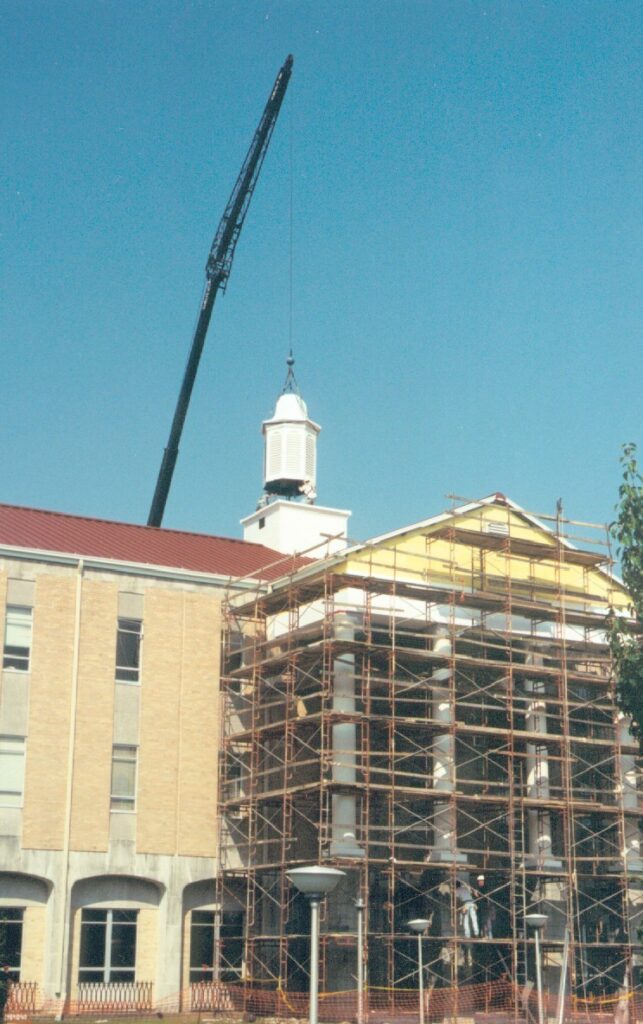

UM Legacy: People of the Halls
The UM Legacy story collection celebrates the rich history of the University of Mobile by sharing the stories of people past and present who helped make UM what it is today. This story is part of the “People of the Halls” series spotlighting the people behind the names of the buildings and sports facilities at the University of Mobile. Read more UM Legacy stories at umobile.edu/umlegacy.
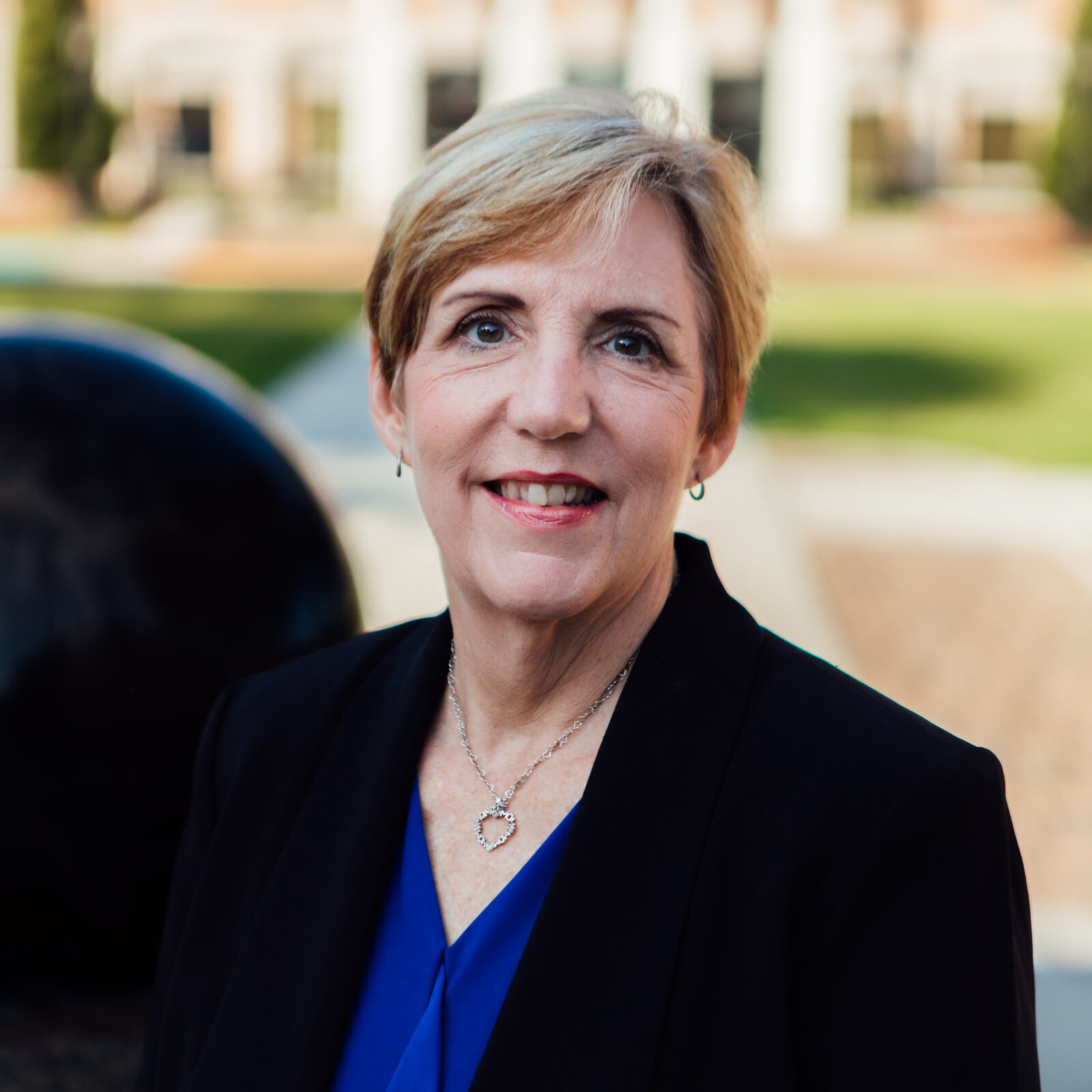
Kathy Dean uses her passion for storytelling and “playing with words” to share the stories of people, place and purpose that make the University of Mobile unique. As associate vice president for university communications, she manages media relations, edits the TorchLight alumni magazine, and oversees university communications. A former award-winning journalist, she is a two-time recipient of the Baptist Communicators Association grand prize for feature writing. Kathy and her husband, Chuck, live with three extremely loud miniature schnauzers.
